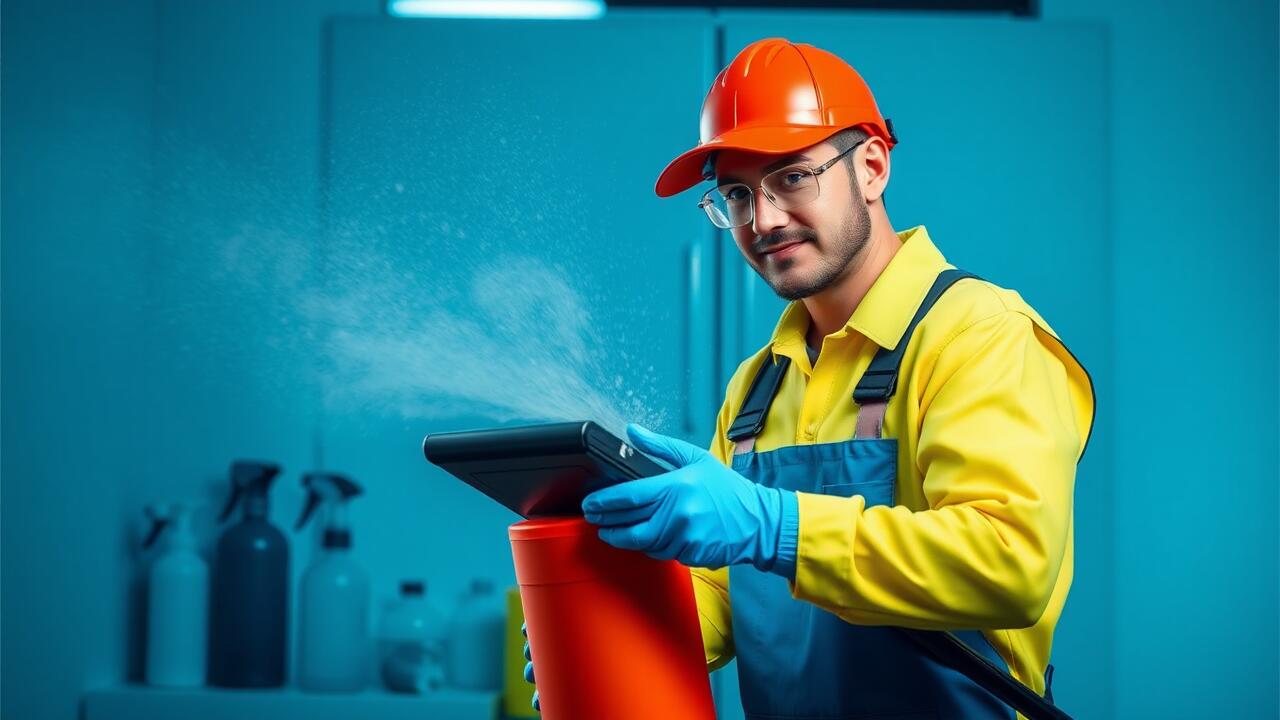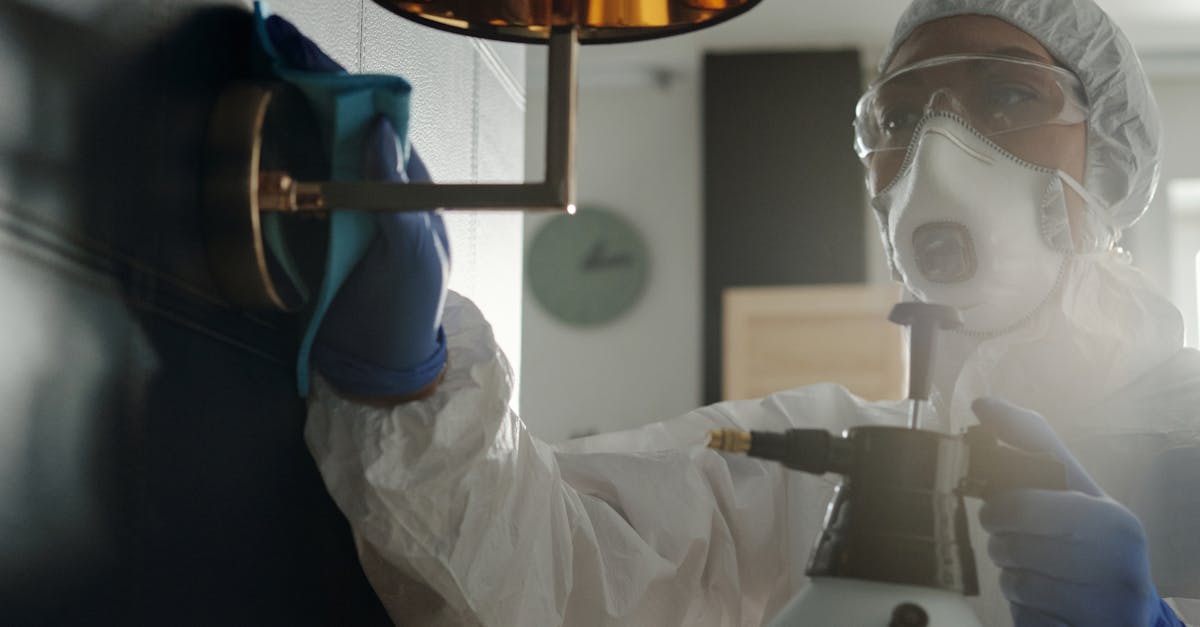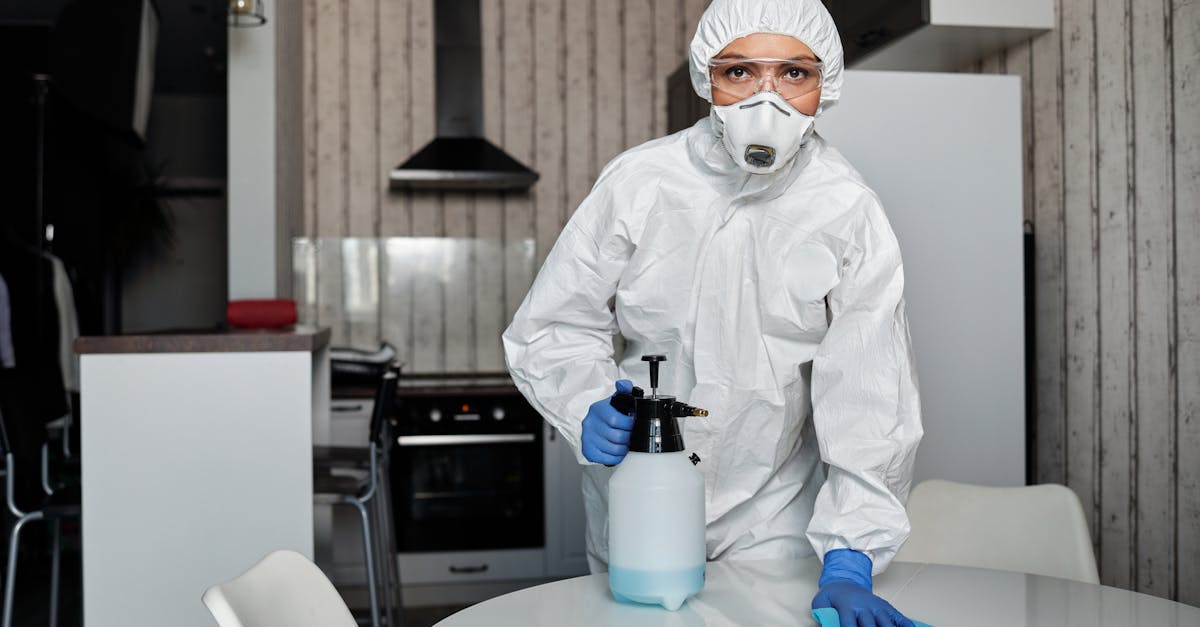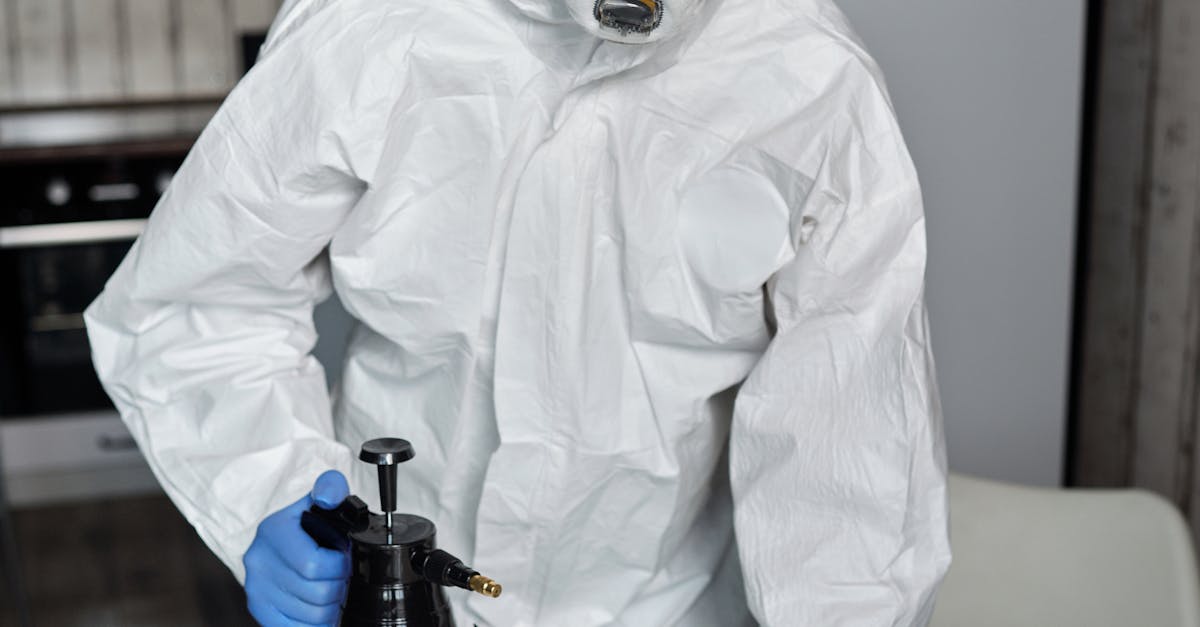
Safety Measures in Chemical Cleaning
Ensuring safety is paramount when engaging in chemical cleaning, especially in environments such as those found in Derbyshire. Proper training is essential for personnel handling cleaning agents, as they must understand the specific hazards associated with each chemical. Clear guidelines for safe handling, storage, and disposal of chemicals contribute significantly to reducing risks. Regular risk assessments should be conducted to identify potential hazards in the workspace, allowing for the implementation of necessary precautions.
Personal Protective Equipment (PPE) plays a critical role in safeguarding workers during chemical cleaning tasks in Derbyshire. Appropriate gear such as gloves, goggles, and respirators must be supplied and worn to protect against potential exposure to harmful substances. Training employees on the correct use and maintenance of PPE is just as important as providing the equipment itself. In addition, having spill control kits readily available ensures that swift action can be taken if any accidents occur, minimising potential harm to both individuals and the surrounding environment.
Personal Protective Equipment (PPE)
When engaging in chemical cleaning, adequate personal protective equipment (PPE) is essential to ensure the safety of individuals involved in the process. Appropriate PPE includes gloves, goggles, face shields, and protective clothing, which serve as barriers against harmful substances. In regions such as Derbyshire, where chemical cleaning practices are prevalent, the use of well-fitted and suitable equipment becomes even more critical. Companies often provide training on selecting and using the correct PPE to mitigate risks effectively.
It is vital to conduct a thorough risk assessment before commencing any chemical cleaning task. This assessment helps identify potential hazards and the specific types of PPE required for the job. In Derbyshire, regulations and guidelines dictate the minimum safety standards for PPE usage, making compliance not just best practice but also a legal obligation. Ensuring that all team members are familiar with the equipment and understand its importance can significantly reduce the likelihood of accidents and injuries.
Environmental Considerations
The environmental impact of chemical cleaning practices has become an essential consideration in recent years. Industries are increasingly aware of their ecological footprint and the potential harm traditional cleaning agents can cause to surrounding ecosystems. Chemical Cleaning in Derbyshire addresses these concerns by promoting the use of substances that minimise environmental damage while maintaining effective cleaning standards. It involves assessing the toxicity of cleaning agents, their biodegradability, and the implications of their disposal methods.
Moreover, businesses are exploring ways to comply with regulations and implement sustainable practices in their operations. This includes opting for eco-friendly chemical solutions that reduce pollution and promote safety for both workers and local communities. The shift towards greener alternatives reflects a growing recognition that responsible chemical cleaning can coexist with environmental stewardship, fostering a more sustainable approach to industrial cleaning processes.
Eco-Friendly Alternatives
The increasing awareness of environmental issues has led to the development of various eco-friendly alternatives to traditional chemical cleaning methods. These options often employ natural ingredients that are less harmful to both users and the environment. For instance, plant-based solvents and biodegradable detergents are gaining popularity. They can effectively clean surfaces while minimising the impact on ecosystems. Many businesses, including those involved in Chemical Cleaning in Leicestershire, are starting to adopt these greener solutions in their practices.
Another approach involves using steam cleaning, which utilises high-temperature steam to disinfect and clean without the need for harsh chemicals. This method not only reduces the reliance on synthetic substances but also conserves water, making it a sustainable choice. As awareness grows, companies are realising the importance of incorporating eco-friendly alternatives into their cleaning regimes. This shift not only enhances public perception but also aligns with broader environmental strategies that many organisations and communities are pursuing.
Comparing Chemical Cleaning to Other Methods
Chemical cleaning is often favoured over mechanical methods due to its efficiency in removing contaminants without the need for extensive physical effort. This process allows for the penetration of cleaning solutions into hard-to-reach areas, ensuring that even stubborn residues are effectively eliminated. In scenarios where equipment or machinery has delicate components, opting for chemical cleaning can prevent potential damage, which may occur through mechanical abrasion. Businesses in Nottinghamshire particularly benefit from this method, as it not only saves time but also reduces the risk of wear and tear on their assets.
While chemical cleaning offers distinct advantages, it is important to measure its effectiveness against other cleaning methods. Mechanical cleaning may provide a tangible approach, employing scrubbing or blasting techniques that yield immediate visible results. However, it often requires more labour and can involve increased downtime for equipment. Therefore, organisations often weigh the cost-effectiveness and overall impact of chemical cleaning in Nottinghamshire to determine the best approach for their specific cleaning needs.
Advantages Over Mechanical Cleaning
Chemical cleaning offers distinct advantages over mechanical cleaning, primarily in its ability to penetrate hard-to-reach areas and eliminate contaminants that mechanical methods may leave behind. Solutions specifically designed to dissolve or suspend grease, residues, and other built-up deposits can effectively restore equipment and surfaces to their optimal condition. This thoroughness not only enhances overall cleanliness but also prolongs the lifespan of machinery and reduces the risk of breakdowns.
In places like Leicestershire, chemical cleaning is often preferred for its efficiency in certain applications. While mechanical cleaning can be effective for some tasks, it may require more time and labour, potentially disrupting operations. The targeted nature of chemical cleaning can lead to quicker turnaround times, making it a valuable option for industries looking to minimise downtime while ensuring high standards of hygiene and equipment performance.
FAQS
What is chemical cleaning?
Chemical cleaning is a process that uses chemical agents to remove contaminants, deposits, and impurities from surfaces and equipment, often in industrial or maintenance contexts.
What safety measures should be taken during chemical cleaning?
It is essential to wear appropriate personal protective equipment (PPE), ensure proper ventilation, and follow safety data sheets (SDS) for the chemicals being used to minimise risks and hazards.
What types of personal protective equipment (PPE) are recommended for chemical cleaning?
Recommended PPE for chemical cleaning includes gloves, goggles, face shields, respirators, and protective clothing to safeguard against chemical exposure.
Are there eco-friendly alternatives to traditional chemical cleaning?
Yes, there are several eco-friendly alternatives available, such as biodegradable detergents, plant-based cleaners, and techniques like steam cleaning that can effectively clean without harsh chemicals.
How does chemical cleaning compare to mechanical cleaning methods?
Chemical cleaning often offers advantages such as more thorough contaminant removal and the ability to clean hard-to-reach areas, while mechanical cleaning can be labour-intensive and may not be as effective for certain types of deposits.





